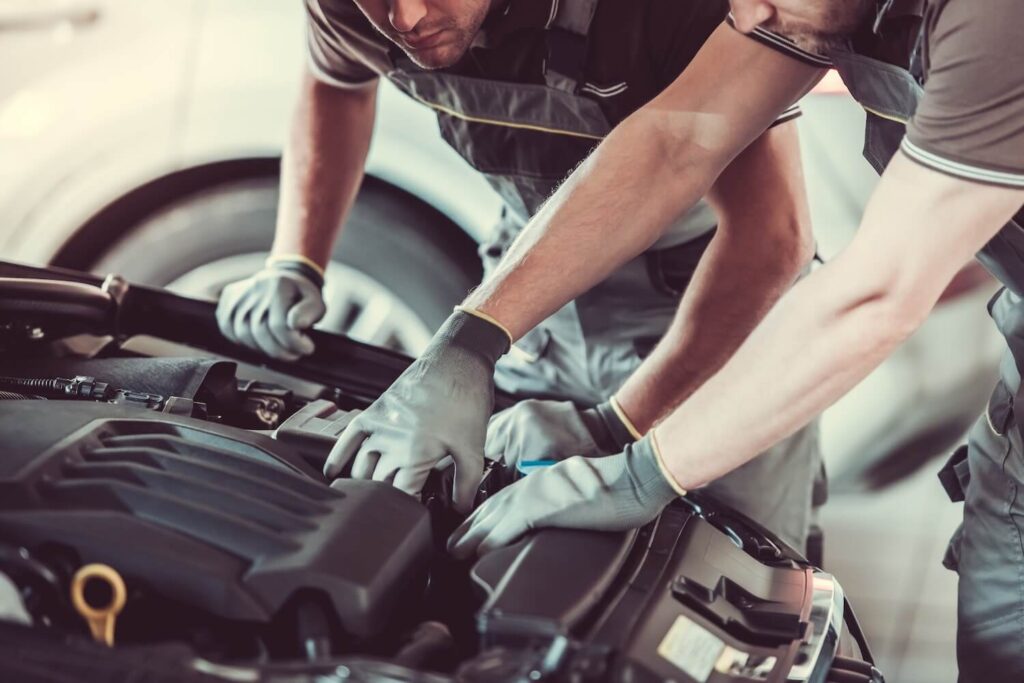The Road Less Traveled: How Chaplains Support Auto Industry Workers
In the bustling world of the auto industry, where the clatter of engines and the scent of motor oil fill the air, the mental and emotional well-being of the workers often takes a back seat. Long hours, physically demanding tasks, and the pressures of meeting deadlines can create a stressful environment. However, an unsung hero is working behind the scenes to support these industry professionals: the chaplain.
While chaplains are commonly associated with hospitals, military bases, and prisons, their presence in the auto industry is a lesser-known yet vital aspect of employee support. From oil change companies to auto repair shops and dealerships, chaplains play a unique role in providing spiritual and emotional care to workers navigating the challenges of their profession.
Understanding the Role of Chaplains in the Auto Industry
Chaplains serving in the auto industry offer a blend of pastoral care, counseling, and spiritual guidance tailored to the unique needs of the workers they serve. They are trained to provide support in times of crisis, offer a listening ear to those in distress, and help individuals find meaning and purpose in their work.
1. Emotional and Mental Well-being
The auto industry is known for its fast-paced and often high-pressure environment. Workers may face challenges such as tight deadlines, demanding customers, and the stress of ensuring vehicle safety and performance. Chaplains are there to provide a supportive presence, offering workers a safe space to express their feelings and concerns.
Chaplains can help workers develop coping strategies, manage stress, and foster resilience. They also assist in addressing issues like job dissatisfaction, burnout, and interpersonal conflicts, helping employees find balance and satisfaction in their roles.
2. Spiritual Support
In addition to emotional and mental support, chaplains can offer spiritual care to workers, recognizing the importance of faith and spirituality in many people’s lives. They provide pastoral guidance and offer spiritual resources tailored to the individual’s beliefs and values when asked.
Chaplains also play a crucial role in helping workers navigate moral and ethical dilemmas that may arise in their professional lives. Whether it’s dealing with difficult customers, making ethical decisions in auto repair, or finding meaning and purpose in their work, chaplains provide a guiding light to help workers align their actions with their spiritual beliefs or moral compass.
3. Crisis Intervention
The auto industry, like any other, is not immune to crises. Whether it’s a workplace accident, a sudden loss of a colleague, or a personal tragedy affecting a team member, chaplains are trained to provide immediate crisis intervention and support.
Chaplains offer emotional and spiritual care to those directly impacted by the crisis, as well as to the broader workforce who may be feeling the effects of the event. They help individuals process their emotions, cope with grief and loss, and find ways to support each other during challenging times.
4. Building Community and Camaraderie
Beyond individual support, chaplains play a vital role in building community and fostering camaraderie among auto industry workers. Through attending social events, facilitating team-building activities, and promoting a culture of mutual respect and understanding, chaplains help create a supportive and cohesive work environment.
By bringing people together, chaplains help break down barriers, strengthen relationships, and promote a sense of belonging and unity among workers. This sense of community not only enhances job satisfaction but also contributes to overall well-being and productivity in the workplace.
Empowering Resilience and Well-being in the Auto Industry
In an era marked by rapid change, uncertainty, and complexity, the auto industry faces unprecedented challenges that require workers to adapt, innovate, and thrive in new ways. Chaplains play a vital role in empowering resilience and well-being among auto industry workers, equipping them with the tools, support, and inspiration needed to navigate the complexities of their profession and lead fulfilling lives.
1. Cultivating Mindfulness and Self-Care Practices
In the high-pressure environment of the auto industry, cultivating mindfulness and self-care practices is essential for maintaining balance, reducing stress, and enhancing overall well-being. Chaplains introduce workers to mindfulness techniques, helpful resources, and self-care strategies that help them stay grounded, focused, and resilient amidst the demands of their work.
By incorporating these practices into their daily routines, workers can improve their mental clarity, emotional stability, and physical health, creating a foundation for long-term success and happiness in both their professional and personal lives.
2. Fostering a Culture of Compassion and Empathy
Chaplains are champions of compassion and empathy, advocating for a workplace culture that values kindness, understanding, and mutual respect. Through education, training, and awareness-raising initiatives, chaplains help foster a culture of compassion and empathy where workers feel valued, supported, and connected.
By promoting open communication, active listening, and empathy-driven decision-making, chaplains empower workers to build stronger relationships, collaborate more effectively, and create a more harmonious and inclusive work environment for everyone.
3. Strengthening Resilience and Adaptability
The auto industry is constantly evolving, driven by technological advancements, regulatory changes, and shifting consumer preferences. Workers must demonstrate resilience and adaptability to thrive in this dynamic and unpredictable environment.
Chaplains help strengthen resilience and adaptability among workers by providing them with the emotional and spiritual support they need to navigate change, overcome challenges, and seize new opportunities with confidence and courage. Chaplains equip workers with the skills, mindset, and resilience needed to thrive in the face of adversity and uncertainty.
4. Promoting Work-Life Harmony and Well-being
Achieving work-life harmony is a significant challenge for many auto industry workers who juggle demanding schedules, tight deadlines, and personal responsibilities. Chaplains advocate for work-life balance and well-being, encouraging workers to prioritize self-care, set healthy boundaries, and find meaningful ways to recharge and rejuvenate outside of work.
By offering resources, guidance, and support, chaplains help workers strike a balance between their professional and personal lives, fostering greater happiness, satisfaction, and fulfillment in all areas of their lives.
Conclusion
In the fast-paced and demanding world of the auto industry, chaplains serve as invaluable pillars of support for workers across various sectors, including oil change companies, auto repair shops, and dealerships. Through offering emotional and spiritual care, crisis intervention, and fostering community and camaraderie, chaplains help workers navigate the challenges of their profession with resilience, purpose, and a sense of belonging.
As the road less traveled, the role of chaplains in the auto industry may be lesser known, but its impact is profound and far-reaching. By recognizing and valuing the unique contributions of chaplains, the auto industry can continue to cultivate a culture of care, compassion, and support, ensuring the well-being and success of its most valuable asset – its people.







